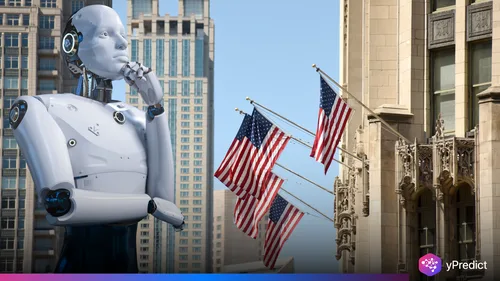
In the past, artificial intelligence felt new, intriguing, and full of potential. The implications for AI appeared to be broad, from intelligent assistants to foresight in health care. Many Americans embraced that technology in 2021, and were excited to see it change their lives. Newer data from Pew Research suggests that excitement is fading fairly quickly.
Today, most Americans feel some level of discomfort with AI’s growing place in everyday life. As the research outlines, AI concerns have grown – concerns now surpass excitement, with concern about the risk outweighing celebrating the possibilities. We have reached an inflection point in the technology-society relationship, where we seem to be witnessing public entry into a new mood of caution.
This shift in public mood may be indicative of larger anxieties about privacy, employment, and the ethics of AI. Many Americans cannot keep pace, as AI tools integrate themselves into work, school, and home life. While the potential for innovation still exists, it is clear that the growing chasm between excitement and fear should not be ignored..
Pew Research Shows a Clear Shift in Public Mood
The recent Pew survey shows how much attitudes have shifted in the past couple of years. In 2021, just 37 percent of Americans said they felt more concerned than excited about AI; that number has climbed to 50 percent today. At the same time, the number of people who felt more excited than concerned has dropped to just 10 percent.
In summary, this suggests that the honeymoon phase of artificial intelligence seems to be over and that public sentiment has switched to skepticism instead. This is a sign that Americans are not walking away from AI, but instead want more accountability. There is more awareness on how companies and the government are adopting the technology.
Why Americans Are Growing More Concerned About AI
There are multiple reasons for growing concerns about AI. First, the rapid roll-out of generative AI tools has raised questions about misinformation and authenticity. Fake photos; edited audio, and AI-generated writing have thrown into doubt what is real and what is artificial.
Moreover, automation continues to be a threat to conventional employment. Workplace automation accelerated with AI systems that can automate human jobs across a wide variety of occupations, from customer service to content generation. For a number of workers, it is unsettling to think that AI could take away the source of their daily livelihood.
Lastly, bias and fairness are still unsolved concerns. Algorithms that automate hiring, lending, and policing have a history of bias and discriminatory outcomes, and these ethical dilemmas establish a culture of distrust and uncertainty with the public, who have little faith in a wider use of AI.
The Decline of Excitement and What Remains
There are still Americans that have a positive attitude towards AI, even though enthusiasm for the technology is waning. There are some who dream of advances in medicine, enhancing educations, and producing efficiencies in everyday life with AI. They represent a small share of the overall conversation, where the majority of Americans exhibit concern for the technology.
So it is telling that only ten percent of Americans are feeling more excited than concerned. This indicates that promise of AI is not enough. Trust needs to be built, especially when done responsibly and carefully articulating security protocols.
What the Shift Means for the Future of AI
An increasing sentiment about AI in the public sphere indicates that the industry is at a crucial crossroads. Innovators will need to prioritize transparency, safety, and ethics as a response to growing public concerns. If concerns are not addressed, these issues will manifest as a limit on acceptance and use.
It is also time for policymakers to take citizens’ concerns seriously. As AI becomes a frame of reference for our everyday lives, regulation will become an important part of AI’s development and influence. There is a need to balance innovation with responsibility in rebuilding trust.
This is a moment that may shape the future of AI. If concerns go unaddressed, there is the potential to impede meaningful progress. If the matter is treated with prudence, there may still be promise of delivering on the hope afforded to the industry.






